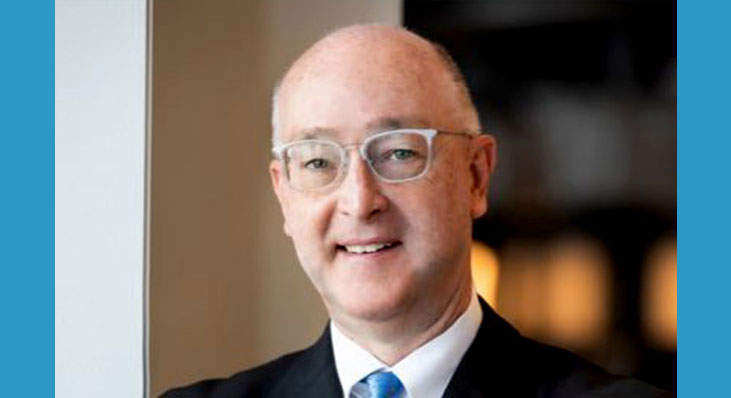Rotary was instrumental in helping to formulate the original documents that created the United Nations,” said RI director Peter Kyle, addressing a panel discussion at the virtual zone institute titled The Odyssey. He recalled the milestone events from 1921 when at the 12th Rotary Convention in Edinburgh, Scotland, Rotary added promotion of peace and goodwill to its Constitution. Eleven Rotarians led by RI President Richard H Wells guided the agendas and played a key role in formulating the resolutions to help resolve disputes between warring parties after being invited by the US in 1945 to participate in the San Francisco Conference that led to the birth of the UN.

The success in fighting polio has earned Rotary “tremendous credibility and sway in the arena of international problem-solving,” said Kyle. “We often complain that the world doesn’t know about Rotary’s role in eradicating polio. The whole world doesn’t need to know! Policymakers and international organisations — they need to know. Our relationship with key policymakers at the UN and other global organisations was important for polio advocacy. We should deepen and expand those relationships.”
When Kyle said that anything to do with global peace would likely have Rotary involvement, as “peace is in our DNA”, Arthur Matty, the Swiss ambassador in Romania, quipped “peace is part of our country’s constitution too and this is equivalent to Rotary’s DNA.” Explaining why Switzerland is investing in peace, he said “we want to create more opportunity for people to build peace as violence in any part of the world not only brings great suffering but crushes the economy of that state or country, invariably creating ripples that would affect us all.”
“Rotary has so much knowhow on peace that we should ask ourselves how could we use these resources better to promote peace. In Geneva we have a Rotary Peace Incubator that has more than 50 Rotary peace fellows, Rotarians and Rotaractors working together to prepare 20 global grants for peace projects,” said Matty.
PRID Larry Lunsford, chair, Rotary Peace Centers, said that “Rotary’s peace programmes have a great legacy.” Indian Rotarians should be proud that “20 years ago, PRIP Rajendra Saboo was among the architects of this programme,” that today comprises seven centres in the world. Five of them offer a Master’s programme, while the other two give a diploma in peacebuilding. “Since its inception 1,300 peace fellows have graduated from our programmes working on peace and development initiatives in 115 countries and we have seen that 93 per cent of the 1,300 alumni are working in jobs connected to peace and development,” he added.
Congratulating zones 5, 6,7 and 8, Lunsford said, “Out of the 170 finalists selected for the peace scholarships nine come from your zones” — four from India, three from Nepal and two from Sri Lanka. “We hope that each Rotarian will be a strong advocate of our peace programme. I would urge you all to determine how the people in your network can support Rotary Peace Centers,” he said.
As a member of the Independent Eminent Persons for the UN Peace Building Architecture Review, Liberata Mulamula, Tanzanian ambassador to the US, spoke about the underlying weaknesses and gaps that are being addressed in the review process for the sustenance of global peace and development, keeping in mind the UN sustainable development goals. She reminded that “peace cannot be sustained without development, and lasting peace is essential for the preservation of development gains. A world with wars is a heavy burden to leave on the shoulders of any one country or government and this is where I find the relevance of this meeting.”
Answering a question on the need for Rotary to invest in peace, Silvia Alejandra Fernández de Gurmendi, International Criminal Court Judge and past Rotary scholar said, “whether you are a teacher, diplomat or a CEO, peace is in everyone’s interest and responsibility. This may sound like an abstraction because every time we talk about peace or war, we think of it as something that is far away from us. War is real, not just for those fighting but for us too.”
PRID Bryn Styles, aide to RIPE Shekhar Mehta, in his closing remarks thanked convener RID Kamal Sanghvi “for bringing together senior Rotary leaders who have experience and passion for peace and international diplomats who have worked in the field of peace.”





